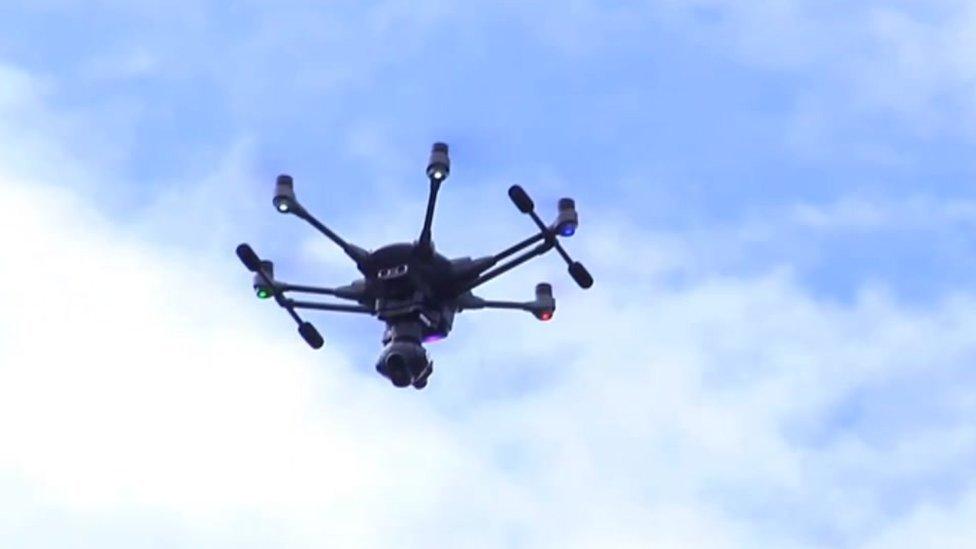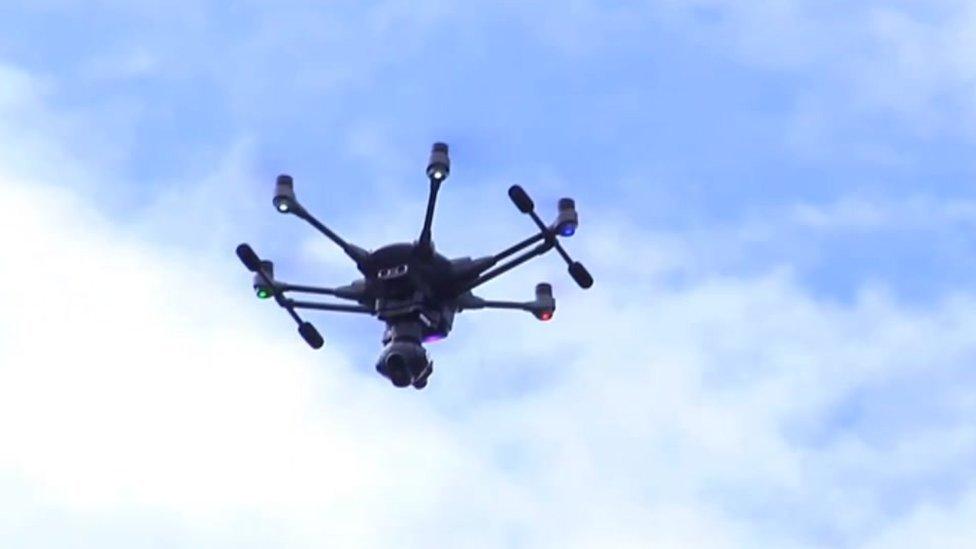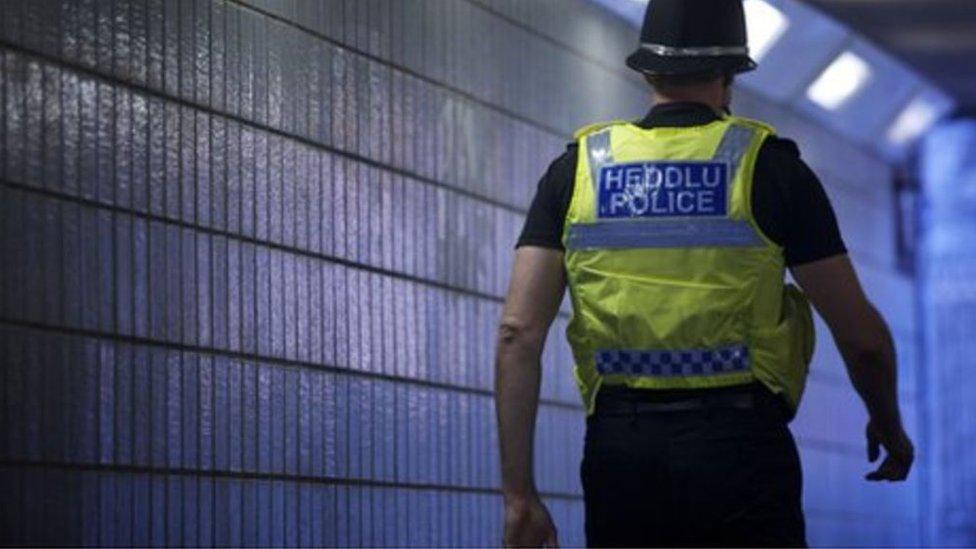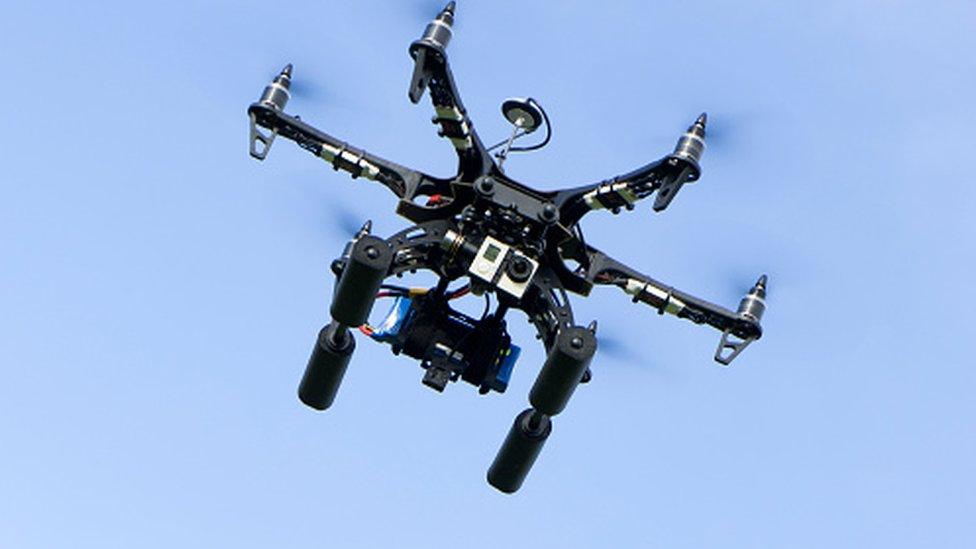Artificial intelligence and drones 'future of policing'
- Published
Chief Constable Jeff Farrar on how technology has changed his job
Artificial intelligence and drones will be key policing tools in the future amid budget and job cuts, Gwent Police's chief constable has said.
Jeff Farrar said he foresees every police vehicle carrying a drone in the years to come and for more computers to do jobs "that do not involve emotion".
Gwent has had £50m of funding cuts and still needs to make £9m of savings. It has also lost 300 officers since 2011.
But Mr Farrar said the force was recruiting again after a jobs freeze.
Last year, 120 police officers were taken on, along with cadets and volunteers. This year, 160 officers will be recruited and the force had been "inundated" with applications, he said.
But, with more money needed to be saved by 2020, Mr Farrar said police needed to work in different ways to ensure they were as efficient and effective as possible.
He said detective work was benefitting from computers. Surveillance work that involves physically following a suspect might take a week - but the same checks can now often be carried out online because people post so much on social media, he said.
"The reality is a lot of the job we do, if it doesn't contain emotion then we can probably do it by way of a computer.
"So a lot of the things that we may be able to do in the future through artificial intelligence might be things that ordinarily would have been done by people."

Mr Farrar pointed out the usefulness of drones in the case of the body of a woman murdered 20 years ago being found at Wentwood Reservoir, near Newport.
"We couldn't have done that by foot and conventional means," said Mr Farrar, speaking as Gwent Police celebrated its 50th anniversary.
"We put a drone up in the air, the drone was right above the scene and I had in my office perfect HD quality pictures of the scene. We could never have done that [without the drone].
"I actually think in years to come, and it's not that far off, we will have one of those drones in the back of every police vehicle so we will be able to deploy those all the time."
Earlier this year, Gwent became the second force in Wales after South Wales Police to gain permission from the Civil Aviation Authority to use the drones - or unmanned aircraft - to help search for missing people, tackle anti-social behaviour and other operations.
In addition, police officers now have body cams to record incidents and hand-held devices which can quickly carry out checks on vehicles and criminal records.
Back at police headquarters in Cwmbran, Mr Farrar has an app he can use to look at any officer's pocket book in real time if he needs any information.
But, ultimately, he said computers would never fully replace the role of police officers.
"The public still like to see a police officer as it's reassuring."
- Published9 March 2017

- Published31 January 2017

- Published27 January 2016

- Published5 May 2016
